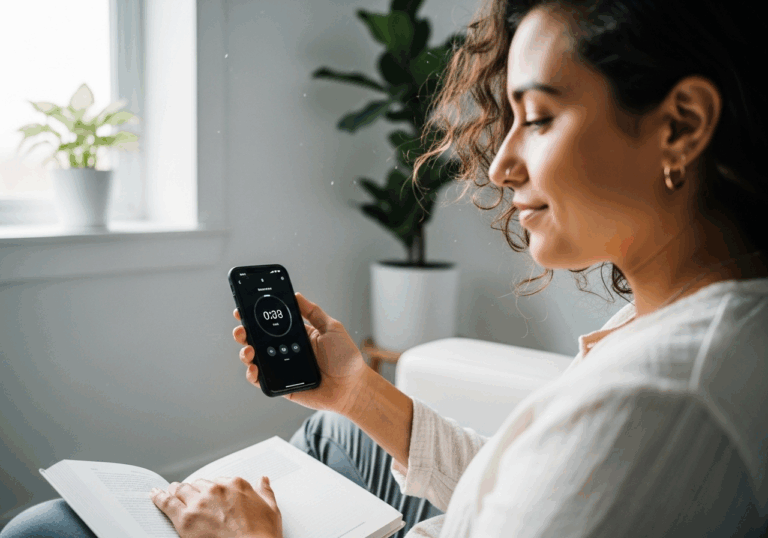Science-Backed Tips
Mindful Tech Use: Reduce Impulsive App Engagement
21% decrease in impulsive app use through mindful prompts.
📊 Did you know?
💡 Why It Matters
1️⃣
Mindful prompts can significantly reduce impulsive behaviors, leading to improved emotional clarity.
2️⃣
Lower impulsive app use can enhance overall mental health and reduce anxiety levels.
3️⃣
Encouraging intentional tech engagement fosters healthier digital habits and improves life satisfaction.
✅ Try These Micro-Tips
🎯
Before opening an app, take 30 seconds to reflect on your intention.
🎯
Set daily usage limits for apps that you find yourself using impulsively.
🎯
Engage in a 5-minute mindfulness exercise before starting your day to enhance focus.
🎯
Track your app usage weekly to identify patterns and adjust your habits.
📚 The study
The findings from this study underscore the importance of integrating mindfulness into our daily routines, especially in how we interact with our devices. As we become more aware of our digital habits, we can take proactive steps towards a healthier lifestyle, ultimately leading to a more fulfilling and less anxious existence.
It’s time to reclaim our time and attention through mindful technology use, ensuring that our devices serve us rather than control us.
❓ Frequently Asked Questions ❓
Learn more
What is the purpose of prompting reflection before using an app?
Prompting reflection helps users consider their intentions, which can reduce impulsive app usage. This practice fosters more intentional engagement with technology, supporting overall mood and emotional clarity.
How does the MyTime app contribute to mindful tech use?
The MyTime app combines mindfulness prompts with usage limits to encourage users to reflect before engaging with apps. This approach has been shown to decrease problematic app use while maintaining meaningful engagement.
What were the results of using mindfulness prompts in app usage?
Research indicated that problematic app use dropped by 21% when mindfulness prompts were implemented. Importantly, this reduction did not come at the expense of meaningful app engagement.
Why is reducing impulsive app use important for mental health?
Lower impulsive app use can lead to improved emotional clarity and overall mental health. It also helps reduce anxiety levels, contributing to a more balanced digital lifestyle.
How can I encourage intentional tech engagement?
You can encourage intentional tech engagement by taking 30 seconds to reflect on your intention before opening an app. Setting daily usage limits for impulsive apps can also help cultivate healthier digital habits.
What is a simple mindfulness exercise to enhance focus?
Engaging in a 5-minute mindfulness exercise before starting your day can significantly enhance focus. This practice prepares your mind for intentional engagement with technology and daily tasks.
How can tracking app usage help improve habits?
Tracking your app usage weekly allows you to identify patterns in your behavior and adjust accordingly. This awareness can lead to more mindful choices and reduced impulsive usage.
What is the impact of mindful prompts on emotional clarity?
Mindful prompts encourage users to engage consciously with their digital devices, which can enhance emotional clarity. This intentional approach to technology use supports overall well-being and life satisfaction.
Can mindfulness prompts be effective for all types of app usage?
Mindfulness prompts are particularly effective for reducing impulsive behaviors associated with problematic app use. However, they can also enhance the quality of engagement with apps that are used meaningfully.
What is the overall significance of mindful design interventions in tech?
Mindful design interventions, like reflective prompts, play a crucial role in promoting healthier digital habits. They not only improve individual well-being but also contribute to a more positive relationship with technology.





